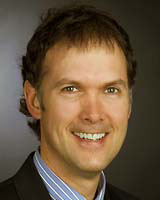During the past few years, there has been an upsurge in interest in rural health issues in the UK and in several other European countries, including those in Eastern and Southern Europe1. This interest may be associated with concern over the deprivation of some rural areas, poor accessibility or the increasing dissatisfaction among both rural practitioners and communities as a consequence of difficulties in satisfying the demand for 24 hour medical services. These problems associated with rural and remote area living have been widely recognized, and several scientific organizations and institutes, including European Rural Isolated Practitioner's Association (EURIPA), have contributed in their identification and exploration of potential resolutions.
Rural areas are heterogeneous2. Aggregated deprivation indices and census data are not sufficient to identify nor understand the antecedent causes of deprivation and poor health in rural communities. There is a need for further research in this area. Rural practitioners are in close contact with residents in isolated and deprived areas and are well placed to reduce anxiety over safety. Because rural practitioners are invited to treat a wide range of illnesses and health problems, they have to be adequately skilled and trained3.
Josephine Dorshch reported, '...rural practitioners tend to make less use of journals and online databases, ask fewer clinical questions, a difference that correlates with geographical and demographic factors'4. This is especially so in Southern and Eastern European countries which have limited access to organized primary-care services and online facilities offering material in their own language. Capacities and resources for research and education vary significantly across Europe, and Mediterranean primary-care physicians are struggling for academic recognition and support5.
Thus there is a clear need for an academic rural health journal for Europe. After initially deciding during its AGM in Tampere, Finland to start its own journal, EURIPA decided to join the international journal, Rural and Remote Health (RRH) at the 16th WONCA World Rural Health Conference in Santiago de Compostella, Spain (2003). Publishing in a European section of the journal RRH has several advantages. These include an established online peer review process, high quality standards, electronic access, rapid publication, free availability, and a wide circulation through an international readership.
The European section of RRH will have considerable editorial autonomy, bringing together European academics, researchers, and clinicians with a broad view on different rural issues, led by a European Regional Editor.
The European section of RRH shall encourage and publish quality research and debate relating to health and health care. This will include, among other areas, rural health policy developments, health needs assessment, planning health promotion and continuing professional education.
We strongly hope that the European Section in RRH will substantially satisfy the information needs of rural practitioners across Europe.
Christos Lionis
European Regional Editor
Paul Worley
Editor-in-Chief
Rural and Remote Health
References
1. Farmer JC, Baird AG, Iversen L. Rural deprivation reflecting reality. British Journal of General Practice 2001; 51: 486-491.
2. Haynes R, Gale S. Deprivation and poor health in rural areas: inequalities hidden by averages. Health Place 2000; 6: 275-285.
3. Strasser R. Rural general practice: is it a distinct discipline? Australian Family Physician 1995; 24(5): 870-871, 874-876.
4. Dorshch J. Information needs of rural health professionals: a review of the literature. Bulletin of the Medical Library Association 2000; 88: 346-354.
5. Soler JK, Lionis C, Kaloeidas M et al. Developing a Mediterranean Family Medicine Group: The Malta consensus. European Journal of General Practice 2002; 8: 69-70.

